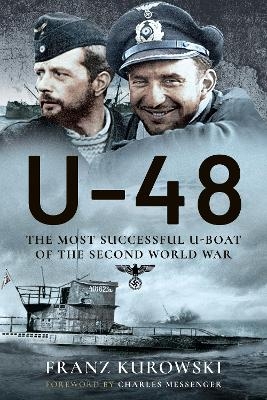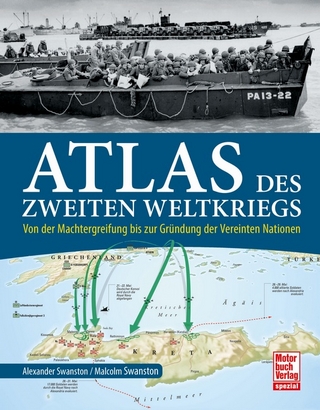
U-48: The Most Successful U-Boat of the Second World War
Seiten
2021
Frontline Books (Verlag)
978-1-3990-1431-1 (ISBN)
Frontline Books (Verlag)
978-1-3990-1431-1 (ISBN)
Complete history of the patrols of a key U-boat and its notorious commander.
Following the signing of the Treaty of Versailles in 1919, Germany was not permitted to build or operate submarines. However, clandestine training took place on Finnish and Spanish submarines and U-boats were still built to German designs in Dutch yards.
At the outset of the Second World War, Admiral Karl Doenitz argued for a 300-strong U-boat fleet, since his force of fifty-seven assorted U-boats could not materially affect British seaborne trade on their own. In August 1939, _U-48_ left Germany, commanded by Kapitanleutnant Herbert 'Vaddi' Schultze, to take up a waiting position around the British coast.
It scored its first success on 5 September, when it torpedoed the British freighter _Royal Sceptre_, followed by _Winkleigh_ on 8 September. On both occasions, the first of many, Schultze showed himself to be a notable humanitarian: he addressed signals to Churchill giving positions of the sinkings so that crews could be saved.
By 1 August 1941, _U-48_, the most successful U-boat of the Second World War, had sunk fifty-six merchant ships, of 322,478 gross tons, and one corvette. She was then transferred to the Baltic as a training boat. Schultze became commander of operations at 3 U-Flotilla, before being appointed commander of II/Naval College Schleswig. He died in 1987 at the age of 78/.
_U-48_ was scuttled on 3 May 1945.
Following the signing of the Treaty of Versailles in 1919, Germany was not permitted to build or operate submarines. However, clandestine training took place on Finnish and Spanish submarines and U-boats were still built to German designs in Dutch yards.
At the outset of the Second World War, Admiral Karl Doenitz argued for a 300-strong U-boat fleet, since his force of fifty-seven assorted U-boats could not materially affect British seaborne trade on their own. In August 1939, _U-48_ left Germany, commanded by Kapitanleutnant Herbert 'Vaddi' Schultze, to take up a waiting position around the British coast.
It scored its first success on 5 September, when it torpedoed the British freighter _Royal Sceptre_, followed by _Winkleigh_ on 8 September. On both occasions, the first of many, Schultze showed himself to be a notable humanitarian: he addressed signals to Churchill giving positions of the sinkings so that crews could be saved.
By 1 August 1941, _U-48_, the most successful U-boat of the Second World War, had sunk fifty-six merchant ships, of 322,478 gross tons, and one corvette. She was then transferred to the Baltic as a training boat. Schultze became commander of operations at 3 U-Flotilla, before being appointed commander of II/Naval College Schleswig. He died in 1987 at the age of 78/.
_U-48_ was scuttled on 3 May 1945.
Born in Dortmund in 1923, FRANK KUROWSKI initially trained as a turner. Called up in 1942, he fought with the Afrika Korps as a Luftwaffe paratrooper. He has been a freelance journalist since 1958 and is the author of more than 100 books on the history of the Second World War, including the acclaimed series _Panzer Aces: German Tank Commanders in World War II_.
| Erscheinungsdatum | 01.11.2021 |
|---|---|
| Zusatzinfo | 16-pp plate section |
| Verlagsort | Barnsley |
| Sprache | englisch |
| Maße | 156 x 234 mm |
| Themenwelt | Natur / Technik ► Fahrzeuge / Flugzeuge / Schiffe ► Militärfahrzeuge / -flugzeuge / -schiffe |
| Geschichte ► Allgemeine Geschichte ► 1918 bis 1945 | |
| Geschichte ► Teilgebiete der Geschichte ► Militärgeschichte | |
| Sozialwissenschaften ► Politik / Verwaltung | |
| ISBN-10 | 1-3990-1431-5 / 1399014315 |
| ISBN-13 | 978-1-3990-1431-1 / 9781399014311 |
| Zustand | Neuware |
| Haben Sie eine Frage zum Produkt? |
Mehr entdecken
aus dem Bereich
aus dem Bereich
von der Machtergreifung bis zur Gründung der Vereinten Nationen
Buch | Softcover (2023)
Motorbuch Verlag
24,90 €


